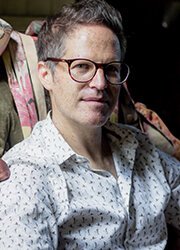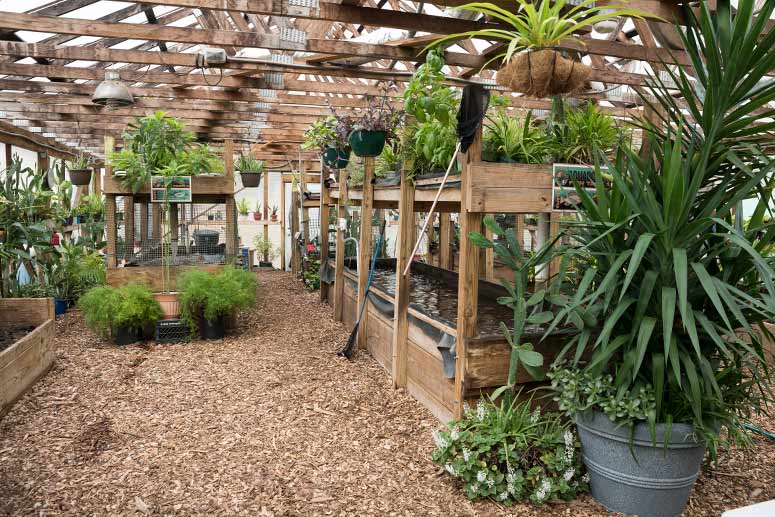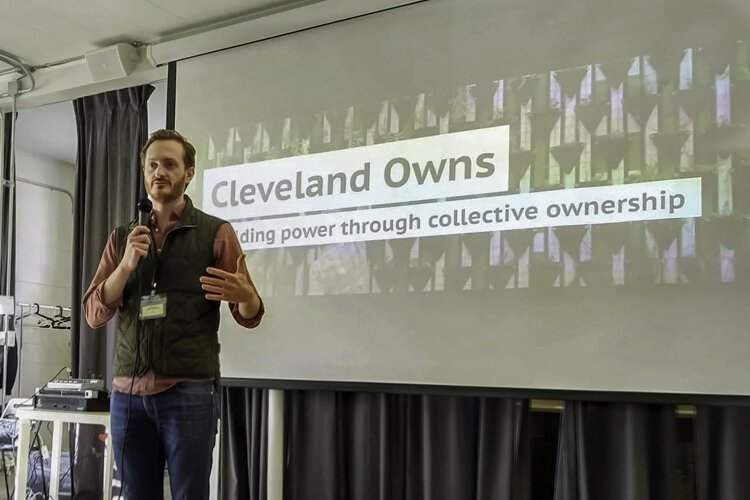Environmental injustice: Exploring the practices that fuel health and wealth hardships
On Tuesday, April 6 the Cleveland Metropolitan Bar Association hosted an environmental justice panel discussion, “Environmental Discrimination in Northeast Ohio: What is it, who’s harmed and what do we do about it?”
The discussion examined some of the historic and continued environmental justice concerns around things such as redlining, the loss of property values, and pollution that have fueled ongoing health and wealth impacts.
The event included a panel of local experts focused on what Western Reserve Land Conservancy senior policy analyst and panel member Frank Ford describes as “90 years of policy that has limited wealth and mobility.”
Ford discussed the impact of housing policies like the redlining maps drawn up by banks in the 1930s to exclude people of color from gaining access to home loans. The practice led to not only limited wealth, but environmental justice concerns like high exposure to pollution and lower home values in Cleveland neighborhoods close to toxic industrial sites.
The legacy of redlining and disinvestment policies led to devaluation of properties, vacancies, and replacing homes with manufacturing facilities—sometimes adding localized pollution—explained moderator Kevin Cronin.
"Residents of the East Side of Cleveland are still more likely to remain in lower-priced housing near industry and manufacturing," agreed Ford, who says his research shows the East Side's housing market is making a slower recovery from the 2007 real estate housing lending crisis that devastated Cleveland.
The East Side of Cleveland has recovered 44% of its pre-crisis value while [the] suburbs have recovered 100% of [their] value, Ford says.
"None of the research proves intentional discrimination." Ford said in the discussion. "But there’s a disparate impact that weighs heavily on the African American community. There’s no way around that."
The foreclosure crisis wiped out most of the wealth that existed in east side real estate, echoed panel member Randell McShepard, founder of the urban think tank PolicyBridge and vice president of public affairs for RPM International.
"All the wealth that built up since 1968, when fair housing laws were adopted, was eliminated by the foreclosure crisis" says McShepard, citing a 2009 PolicyBridge report, Rebuilding Blocks.
“Those are the nest eggs for college or retirements,” he says. “It shows the decimating impact the foreclosure crisis had.”
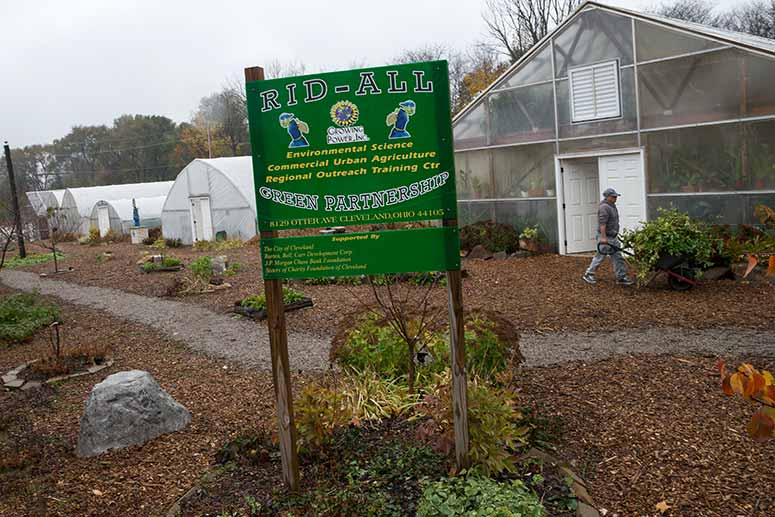 Rid-All Green PartnershipIn the discussion McShepard focused on what he calls a positive story in describing Cleveland’s East Side urban agriculture operation—Rid-All Green Partnership, which he co-directs and has raised funds for its growth from a 1.3-acre site of illegal dumping into an oasis.
Rid-All Green PartnershipIn the discussion McShepard focused on what he calls a positive story in describing Cleveland’s East Side urban agriculture operation—Rid-All Green Partnership, which he co-directs and has raised funds for its growth from a 1.3-acre site of illegal dumping into an oasis.
Today, multiple business lines and educational programming take place on 15 acres of green space dotted with buildings.
In its first decade, Rid-All built six giant hoop houses where food crops are grown year-round, a tilapia fish farm business that supplies local restaurants, a community kitchen, and a giant compost operation that turns food waste into soil capable of sequestering carbon emissions (Rid-All participates in the national Urban Drawdown Initiative, which is sequestering carbon emissions in cities through the creation of soil).
Rid-All has toured more than 4,000 people through its space in a neighborhood that, for years, has been known as the Forgotten Triangle.
"It's not so forgotten anymore," McShepard says. He adds that Rid-All plans to expand again this year—planting a tree nursery that will ultimately supply Cleveland with trees. "In the height of summer where there's more concrete (in the city), it gets hotter, which contributes to asthma and other health disparities," he says.
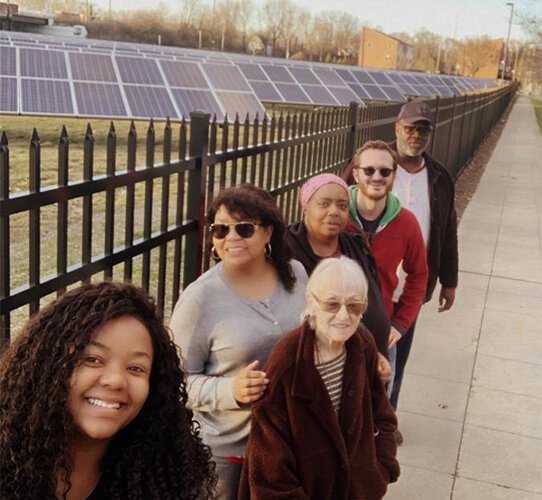 Cleveland Owns and The Block Club are teaming up on the Cleveland Solar Garden—a project they hope will win funding and regulatory approval from the city.Rid-All is a model that panel member Jonathan Welle, executive director of Cleveland Owns, and Cynthia Mumford of Hough's The Block Club hope to build upon. They are teaming up on the Cleveland Solar Garden—a project they hope will win funding and regulatory approval from the city to convert a vacant lot into a solar energy project that is cooperatively owned by residents.
Cleveland Owns and The Block Club are teaming up on the Cleveland Solar Garden—a project they hope will win funding and regulatory approval from the city.Rid-All is a model that panel member Jonathan Welle, executive director of Cleveland Owns, and Cynthia Mumford of Hough's The Block Club hope to build upon. They are teaming up on the Cleveland Solar Garden—a project they hope will win funding and regulatory approval from the city to convert a vacant lot into a solar energy project that is cooperatively owned by residents.
The idea of community cooperatives for energy have long existed in places like the Netherlands, and Mumford says she sees it as a pathway to more community owned assets. "We want more than something off our energy bill," she says. "We want to use this platform to not only build businesses in Hough, but as a model to create wealth."
Welle says a ground-mounted solar array makes more sense than on rooftops—given that redlining has often denied home ownership and home improvement loans to people of color.
But regulatory hurdles in Ohio are producing strong headwinds. They have been working at it for a year, with the help of Legal Aid Society, but acknowledge the challenge. They like what they see in Minnesota where the state created a virtual net metering agreement that allows for solar projects to sell renewable energy to power companies at competitive rates.
"We’re on the verge of a grand transition, one of the largest in a lifetime from fossil fuels to renewable energy," Welle says. "To make it 'just' we need to be aware of the harms that were done by past energy systems."
"We’ve been through the Hough riots, and we used to be Millionaires Row,” Mumford says. “It was beautiful here. Now, after the great exodus of white people, you have this transition of families who have chosen to build their dream home in Hough, as a symbol of hope.
"We’re trying to position ourselves in the [big investments in] solar industry that will be coming in the next ten years. This is another history making event once our project is complete."
